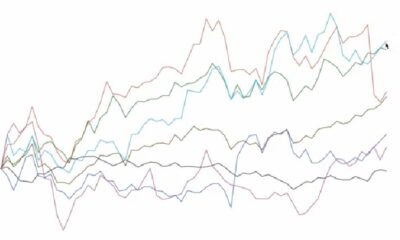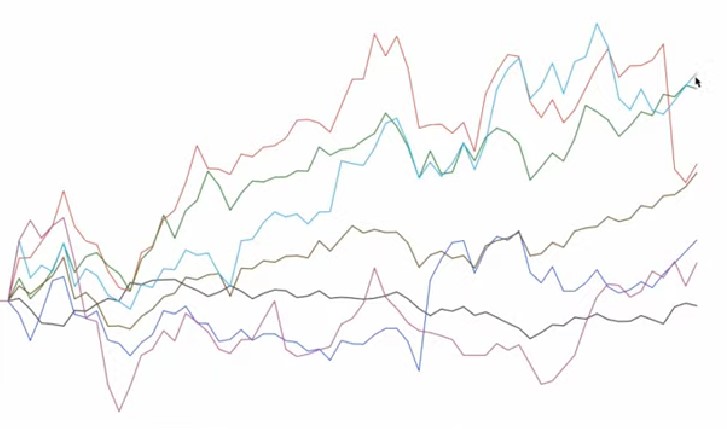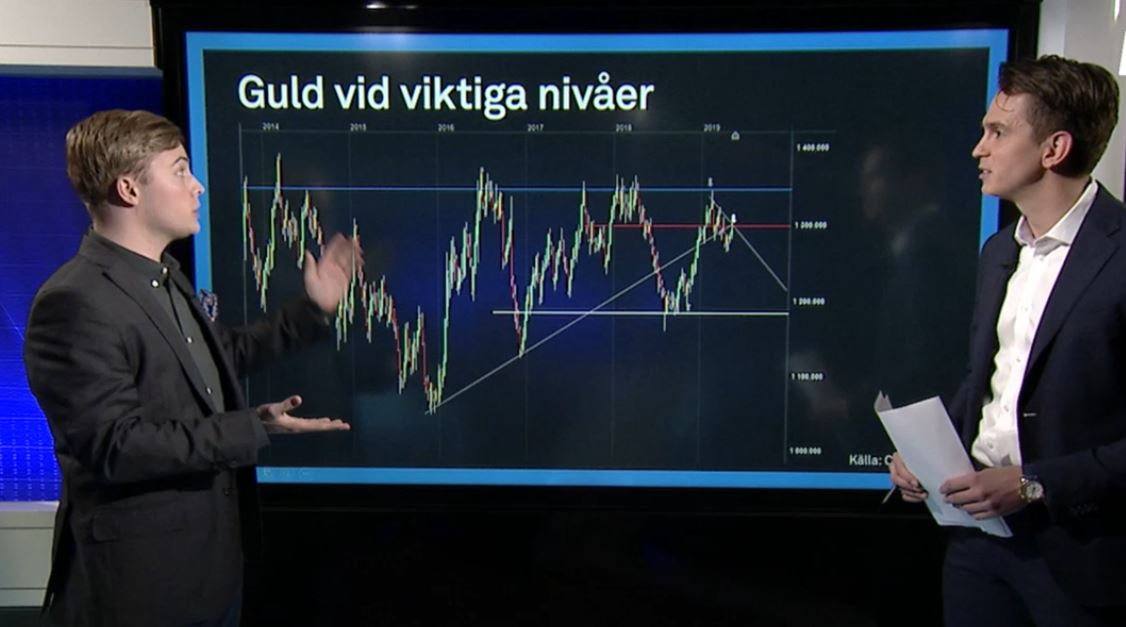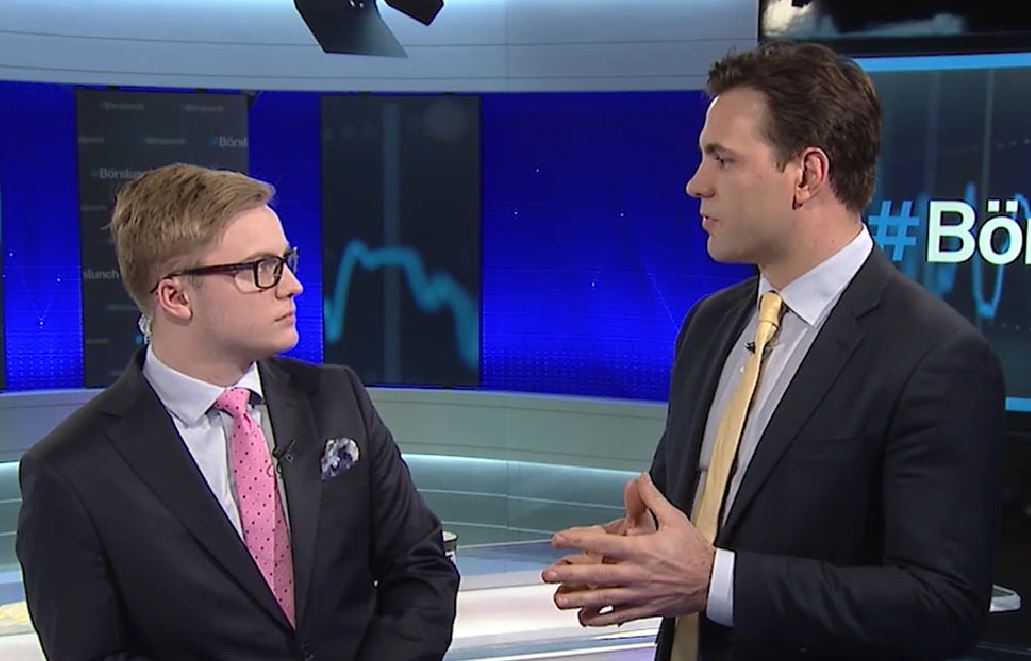Analys från DailyFX
A Daring GBP/JPY Trade That’s Well Worth the Risk
Talking Points:
- 3 Patterns That Justify a Countertrend Trade
- Controversial Pattern on GBP/JPY Daily Chart
- The Clearest Reason of All to Take This Trade
The market has proven a little gun shy lately, avoiding entering safe support and resistance zones where risk on new positions can be better controlled. This happened twice this week, both in the EURGBP short set-up we targeted on Monday and the GBPCAD long set-up we spotted Tuesday. Both trades turned sharply profitable just before price touched the support/resistance zones we identified as potential entry areas.
This is usually when more inexperienced traders start thinking about how a small tweak to their strategy would have allowed them to catch those trades. However, without serious testing, this is very ill-advised, as even ”small” tweaks to a working strategy usually result in only a few more winners while opening the floodgates to more losing trades and a bevy of unforeseen problems.
Instead, the best thing to do is keep plugging away using the existing strategy, even if it means narrowly missing new entry opportunities. As there have been no trades, there have been no losses, either, and that is far preferable to suffering through losing trades.
As experienced traders will have noticed, virtually every strategy goes through periods of being miraculously correct, being dead wrong, and being everything in between. This is just one of those ”in-between” phases.
In sticking with the current strategy, today, we highlight a countertrend trade on the “big kahuna” of volatility, GBPJPY.
On the weekly chart below, price is reaching upwards to test the resistance offered by the top of a very large wedge pattern. Indeed, this pattern is so large that it could qualify as a monthly wedge.
Guest Commentary: Massive Wedge on GBP/JPY Weekly Chart
That very large wedge alone would not be reason enough to take this trade, however, so the daily chart must be examined, too. And, on the GBPJPY daily chart, we get the second piece of the puzzle, noting a second wedge pattern that is heading upwards to meet the longer-term resistance.
Guest Commentary: A Second Wedge Pattern in GBP/JPY
Now, two levels of resistance might justify a trend trade, but it is still insufficient to qualify for a countertrend trade. That’s why we look to the four-hour chart below, which offers resistance from a rising channel.
Perceptive traders will note that these lines can be drawn slightly differently, depending on one’s interpretation, and thus, some leeway has been given in order to account for the resistance zone, which is identified as 166.28-168.01.
Guest Commentary: Rising Channel Resistance for GBP/JPY
On the hourly chart below, the sudden rise in price may be alarming, but it is actually conforming to a saucer bottom breakout pattern. Standard charting technique has the pattern’s resistance at a height equal to the saucer’s depth, which, in this case, is well within the resistance zone already projected.
Some purists may disagree with the use of this pattern in a continuation market, but practical experience suggests that it works perfectly well.
Guest Commentary: Controversial Pattern on GBP/JPY Hourly Chart
This trade is to be taken on the hourly chart using the usual reversal divergence, pin bars, and/or bearish engulfing patterns as triggers. As always, be prepared to take two or three tries to get the entry right. This is particularly true this time due to the countertrend nature of the trade.
Critical Facts About Countertrend Trading
As newer traders are always salivating at the prospect of catching a countertrend top or bottom, it is the aim of this article to highlight the importance of meticulous analysis before initiating such a trade.
Very simply put, the probability of being wrong on a countertrend trade is flat-out higher, especially in pairs like GBPJPY, which are famous for chewing up accounts in very short order.
The more faint-of-heart may wish to sit this one out, and in light of that, a most pertinent question would be, ”Why take this trade at all?”
In this case, the answer lies in plain view on the GBPJPY monthly chart.
Guest Commentary: Thousands of Pips in GBP/JPY Profit Potential
The monthly chart could well be in a large range consolidation, and price is at the potential high of that range. If this scenario works out, this could be the first trade of many that ride a move down and potentially cover several thousand pips.
Needless to say, that would be a more-than-reasonable trade-off for the lower-probability nature of this trade!
By Kaye Lee, private fund trader and head trader consultant, StraightTalkTrading.com
Analys från DailyFX
EURUSD Weekly Technical Analysis: New Month, More Weakness
What’s inside:
- EURUSD broke the ‘neckline’ of a bearish ‘head-and-shoulders’ pattern, April trend-line
- Resistance in vicinity of 11825/80 likely to keep a lid on further strength
- Targeting the low to mid-11600s with more selling
Confidence is essential to successful trading, see this new guide – ’Building Confidence in Trading’.
Coming into last week we pointed out the likelihood of finally seeing a resolution of the range EURUSD had been stuck in for the past few weeks, and one of the outcomes we made note of as a possibility was for the triggering of a ’head-and-shoulders’ pattern. Indeed, we saw a break of the ’neckline’ along with a drop below the April trend-line. This led to decent selling before a minor bounce took shape during the latter part of last week.
Looking ahead to next week the euro is set up for further losses as the path of least resistance has turned lower. Looking to a capper on any further strength there is resistance in the 11825-11880 area (old support becomes new resistance). As long as the euro stays below this area a downward bias will remain firmly intact.
Looking lower towards support eyes will be on the August low at 11662 and the 2016 high of 11616, of which the latter just happens to align almost precisely with the measured move target of the ‘head-and-shoulders’ pattern (determined by subtracting the height of the pattern from the neckline).
Bottom line: Shorts look set to have the upperhand as a fresh month gets underway as long as the euro remains capped by resistance. On weakness, we’ll be watching how the euro responds to a drop into support levels.
For a longer-term outlook on EURUSD, check out the just released Q4 Forecast.
EURUSD: Daily
—Written by Paul Robinson, Market Analyst
You can receive Paul’s analysis directly via email bysigning up here.
You can follow Paul on Twitter at@PaulRobinonFX.
Analys från DailyFX
Euro Bias Mixed Heading into October, Q4’17

Why and how do we use IG Client Sentiment in trading? See our guide and real-time data.
EURUSD: Retail trader data shows 37.3% of traders are net-long with the ratio of traders short to long at 1.68 to 1. In fact, traders have remained net-short since Apr 18 when EURUSD traded near 1.07831; price has moved 9.6% higher since then. The number of traders net-long is 15.4% lower than yesterday and 16.4% higher from last week, while the number of traders net-short is 0.4% higher than yesterday and 10.5% lower from last week.
We typically take a contrarian view to crowd sentiment, and the fact traders are net-short suggests EURUSD prices may continue to rise. Positioning is more net-short than yesterday but less net-short from last week. The combination of current sentiment and recent changes gives us a further mixed EURUSD trading bias.
— Written by Christopher Vecchio, CFA, Senior Currency Strategist
To contact Christopher Vecchio, e-mail cvecchio@dailyfx.com
Follow him on Twitter at @CVecchioFX
To be added to Christopher’s e-mail distribution list, please fill out this form
Analys från DailyFX
British Pound Reversal Potential Persists Heading into New Quarter

Why and how do we use IG Client Sentiment in trading? See our guide and real-time data.
GBPUSD: Retail trader data shows 38.2% of traders are net-long with the ratio of traders short to long at 1.62 to 1. In fact, traders have remained net-short since Sep 05 when GBPUSD traded near 1.29615; price has moved 3.4% higher since then. The number of traders net-long is 0.1% higher than yesterday and 13.4% higher from last week, while the number of traders net-short is 10.6% lower than yesterday and 18.3% lower from last week.
We typically take a contrarian view to crowd sentiment, and the fact traders are net-short suggests GBPUSD prices may continue to rise. Yet traders are less net-short than yesterday and compared with last week. Recent changes in sentiment warn that the current GBPUSD price trend may soon reverse lower despite the fact traders remain net-short.
— Written by Christopher Vecchio, CFA, Senior Currency Strategist
To contact Christopher Vecchio, e-mail cvecchio@dailyfx.com
Follow him on Twitter at @CVecchioFX
To be added to Christopher’s e-mail distribution list, please fill out this form
-
Analys från DailyFX9 år ago
EUR/USD Flirts with Monthly Close Under 30 Year Trendline
-

 Marknadsnyheter2 år ago
Marknadsnyheter2 år agoUpptäck de bästa verktygen för att analysera Bitcoin!
-
Marknadsnyheter5 år ago
BrainCool AB (publ): erhåller bidrag (grant) om 0,9 MSEK från Vinnova för bolagets projekt inom behandling av covid-19 patienter med hög feber
-
Analys från DailyFX11 år ago
Japanese Yen Breakout or Fakeout? ZAR/JPY May Provide the Answer
-
Analys från DailyFX11 år ago
Price & Time: Key Levels to Watch in the Aftermath of NFP
-

 Marknadsnyheter2 år ago
Marknadsnyheter2 år agoDärför föredrar svenska spelare att spela via mobiltelefonen
-
Analys från DailyFX7 år ago
Gold Prices Falter at Resistance: Is the Bullish Run Finished?
-

 Nyheter6 år ago
Nyheter6 år agoTeknisk analys med Martin Hallström och Nils Brobacke















